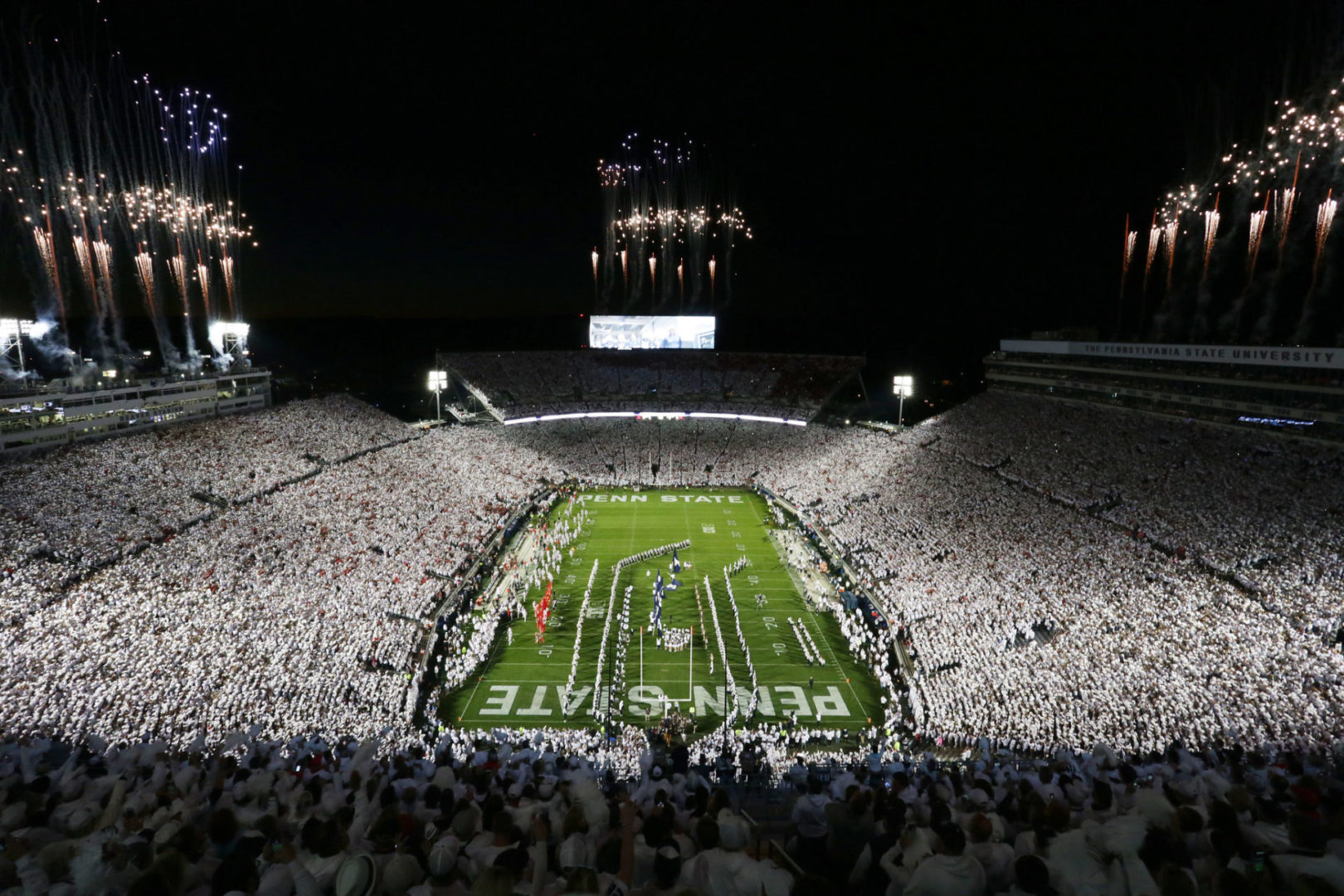Beaver Stadium will once again have its roar as Penn State announced on Tuesday that it intends to allow for full-capacity fan attendance for the upcoming 2021 season. The news comes just a day Pennsylvania lifted most of its COVID-19 restrictions, including limits on event sizes.
Other Penn State athletic venues also will be at full capacity.
“We are excited to welcome our 107K strong back in Beaver Stadium and full capacity at our other athletics venues this fall with the adjustments in university, local, state and CDC guidance,” Vice President for Intercollegiate Athletics Sandy Barbour said in a statement. “Our fans are a true home field advantage for all of our teams and the 2020-21 season was not the same without them in our venues. We are so appreciative of the tremendous support of our donors and fans, especially during these challenging times, to allow us to continue to provide our more than 800 students-athletes with the conditions they need for success.”
With the return of full capacity, pre-game festivities including tailgating and the team arrival also will resume, according to an athletic department news release.
Football season ticket holders will be notified by email beginning June 8 that their season ticket and seat contribution invoices are available in Account Manager. Details on single-game and student ticket sales will be announced “in the coming weeks,” according to the release.
The athletic department will be fully converting to mobile tickets for all fans and all sports. A mobile ticketing guide is available on GoPSUsports.com and other resources to help ease the transition will be made available over the summer.
As of now, fans who are not vaccinated against COVID-19 will be required to wear masks inside the stadium. It was not clear if or how that would be enforced. The policy also may change before September, as Pennsylvania will no longer require masks, regardless of vaccination status, in most circumstances no later than June 28.
The university announced separately on Tuesday that beginning June 28 individuals who are fully vaccinated would no longer be required to wear masks inside campus buildings, but that unvaccinated individuals would still be expected to do so.
While player family members were permitted to attend games in 2020, general fan attendance hasn’t happened since Penn State’s November 30th meeting against Rutgers in 2019, a span of nearly 650 days between games. The time that has passed between those two games featured an array of on and off field obstacles from Penn State’s 0-5 start to the ongoing but slowly subsiding COVID-19 pandemic.
Beyond the tangible positives of life returning to normal at one of the world’s largest stadiums, the financial implications of fan attendance are perhaps far more consequential. In 2019 Penn State football reported nearly $102 million in revenues against $48.7 million in operating expenses with $37.6 million coming in the form of ticket sales to see the Nittany Lions play.
That revenue figure dwindling to effectively zero has generated a financial crisis amongst many collegiate athletic departments looking to make ends meet in a landscape that is frequently not a profitable venture. Penn State is expected to report millions in revenue shortfall by the conclusion of the ongoing fiscal year but that reporting is not due to the NCAA until early 2022.
Penn State reported a slight increase in revenues and profits during the 2019-20 fiscal year this past week.



